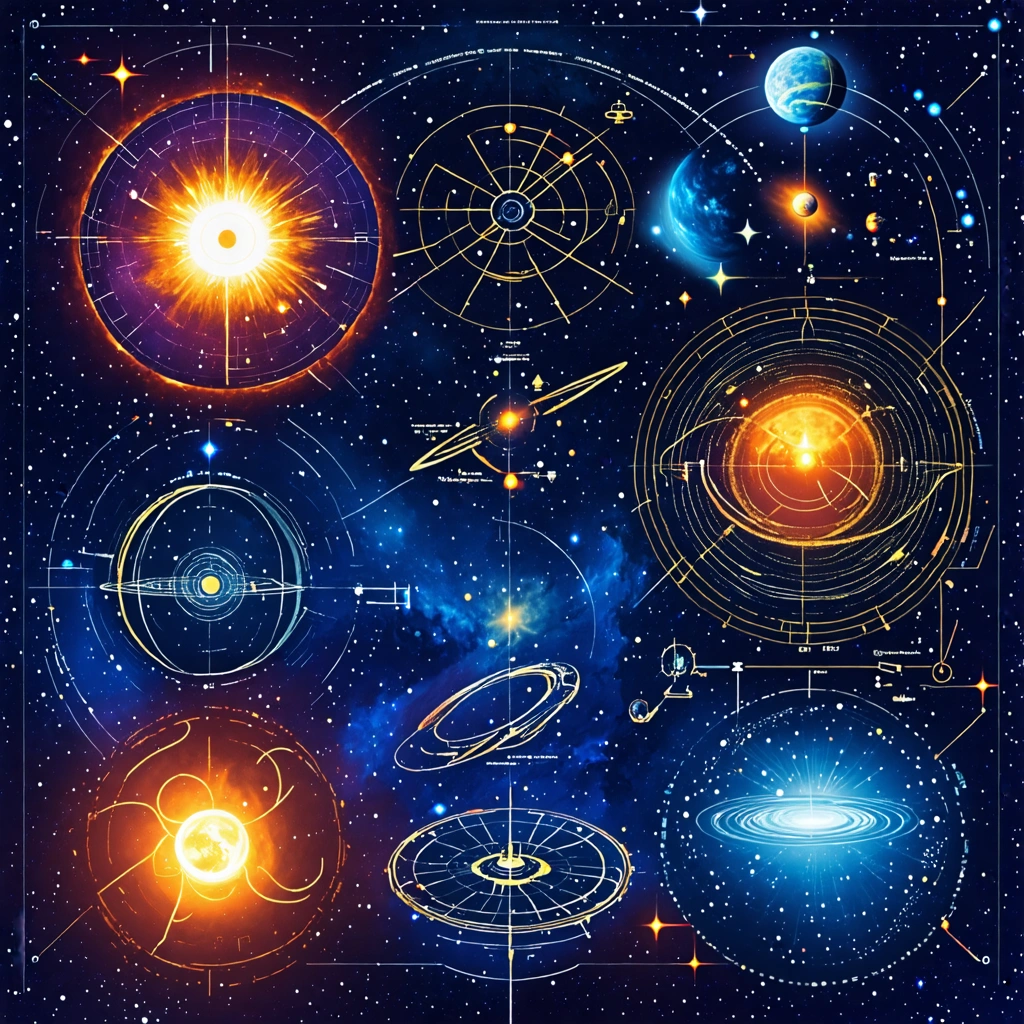
Exploring the New Frontier: Revolutionary Theories on Space Travel
Takeaways:
- New theories in physics are challenging traditional concepts of space travel.
- Quantum mechanics and wormholes may offer new pathways to interstellar journeys.
- Future technologies could make human colonization of other planets a reality.
As humanity stands on the brink of a new era in space exploration, a wave of innovative theories is revolutionizing our understanding of space travel. Gone are the days when we relied solely on chemical propulsion and Newtonian physics to venture into the cosmos. Today, researchers are delving into the realms of quantum mechanics, general relativity, and even speculative concepts such as warp drives and wormholes. This article explores these groundbreaking ideas and their implications for the future of interstellar travel.
Challenging the Status Quo: The Rise of New Theories

One groundbreaking theory that has gained traction is the idea of using wormholes as shortcuts through spacetime. According to Einstein’s theory of general relativity, a wormhole is a tunnel-like structure that connects two separate points in spacetime. If these structures exist and can be stabilized, they could potentially allow spacecraft to traverse vast distances in a fraction of the time it would take using conventional propulsion methods.
Moreover, the concept of the warp drive, popularized by science fiction, is becoming a subject of serious scientific inquiry. Theoretical physicist Miguel Alcubierre proposed a model where a spacecraft could achieve faster-than-light travel by contracting space in front of it and expanding space behind it. This idea, although still in the realm of theoretical physics, has sparked interest among scientists and engineers who are exploring ways to make it a reality.
The Role of Technology in Advancing Space Travel
As we explore these revolutionary theories, it’s essential to recognize the role of technology in making them feasible. The development of advanced propulsion systems is critical to the future of space exploration. Traditional rocket engines have limitations that new technologies aim to overcome. For instance, ion propulsion and nuclear thermal propulsion are being researched as alternatives that could provide greater efficiency and power for long-duration space missions.
Additionally, the advent of artificial intelligence and machine learning is set to transform how we approach space travel. AI can optimize spacecraft navigation, enhance data analysis, and even assist in autonomous decision-making during missions. This could be particularly valuable for deep space exploration, where communication delays make real-time control challenging.
Furthermore, the integration of renewable energy sources, such as solar and nuclear power, can sustain long-term missions beyond our planet. Solar sails, which utilize sunlight for propulsion, represent a promising avenue for future spacecraft design. These innovations not only make missions more sustainable but also reduce the reliance on traditional fuel sources.
The Implications for Human Colonization

Colonization efforts will require us to rethink our approach to extraterrestrial environments. Understanding the biological and ecological implications of introducing Earth life to other planets is crucial. Furthermore, the psychological and social dynamics of long-term space habitation must be considered to ensure the well-being of future astronauts and settlers.
In conclusion, the new theories about space travel are opening up a universe of possibilities. As we continue to explore these ideas and develop the technologies to support them, humanity stands on the precipice of a new era of exploration and discovery. The stars may no longer be out of reach, but a new challenge awaits: how to responsibly and sustainably navigate our expansion into the cosmos.




